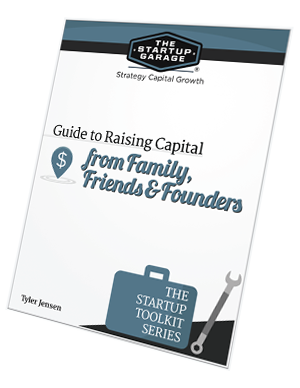Another group to consider asking for funding from is other startup founders and entrepreneurs. I know what you must be thinking, “I’m a startup founder and don’t have any money. I thought we were all in the same situation. How is another founder going to be able to afford and give me the funding I need to turn my idea into something tangible?” The key is to approach serial entrepreneurs.
Why serial entrepreneurs?
For one, they have been in your shoes. They have a good sense of what you are going through and know the amount of hard work and dedication it takes to make a business successful. These are people who have seen both success and, more importantly, failure. They know how likely it is your startup will fail, but are driven by the ambiguous path and are always itching to do something innovative and learn something new. For these reasons, serial entrepreneurs can give you some of the best startup business advice. If they do decide to invest in your company, they could become a strategic advisor.
Mentor vs. Advisor
What is the difference between a mentor and an advisor, and why does it matter?
Leveraging the help of those who have been there and done that is one of the simplest ways to give your company a competitive advantage. This role can be filled easily by a mentor or an advisor, but which do you do you choose? In order to get the full advantage for your company, it is important to understand the difference and figure out which is best for you.
Mentor
A mentor is focused on you. They concentrate on your personal growth and development as a business leader. Your mentor should be someone who has worked in similar companies and roles as you and can offer advice that is both professional and personal. You want them to offer advice that will help lead you in the right direction. Mentors should be there for you to give constructive feedback. They will best serve you with their entrepreneurial insight by providing the support and validation you need to gain confidence and learn to work through your issues. The keys an effective mentorship include listening, sharing mistakes, being supportive, asking questions, being credible within your area of expertise, offering objectivity, and modeling good entrepreneurial behavior.
Advisor
An advisor is focused on the business. They care more about the business ends of things than your personal growth. You want someone who knows the industry and can open doors that can help the business. You want an advisor who will add value to your company through their experience and knowledge. An advisor is there to offer you direct, proactive advice and is typically paid for their services through equity. Many companies will employ high-profile advisors believing that it will bring their business more credibility to future investors and strategic partners.
One of the greatest tools that come from having a mentor or advisor is the network of business people that come along with them. As a founder it is important to meet and connect with other founders at events going on in your community. Meetup.com is a great place to find out what events are going on in your town, and as a founder you should be going to at least two events a week. Other resources are:
CoFoundersLab
Startup Weekend
Lean Startup Machine
Want To Learn More?
Download our free Raising Capital From Friends, Family & Founders eBook.
This book overviews best practices for raising money from the first people you go to — your family, friends & founders. Dealing with money in personal relationships can get a bit tricky. This guide will cover fundamental concepts, legal issues and material you’ll need. It will help prepare you for the difficult conversations and in some cases enable you to avoid them altogether.



